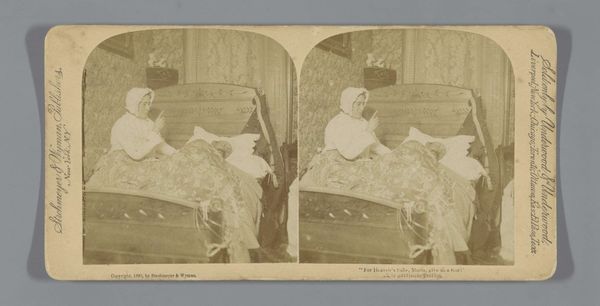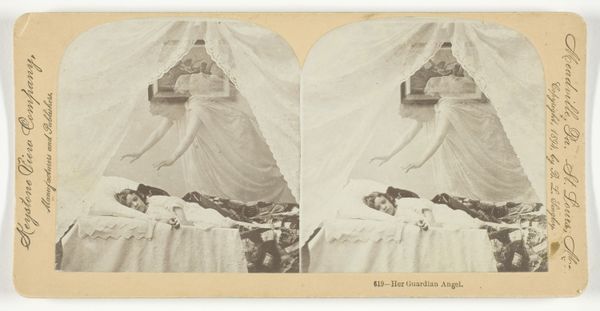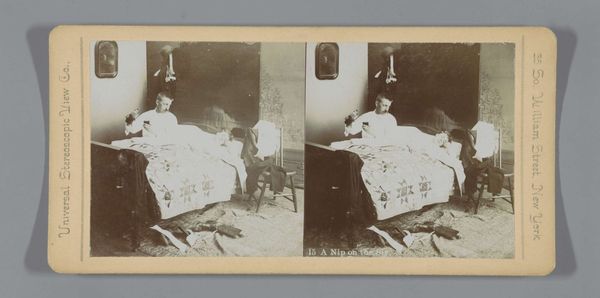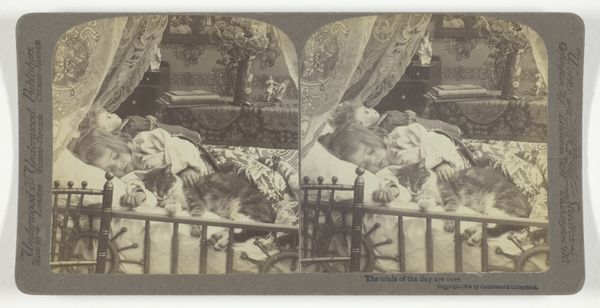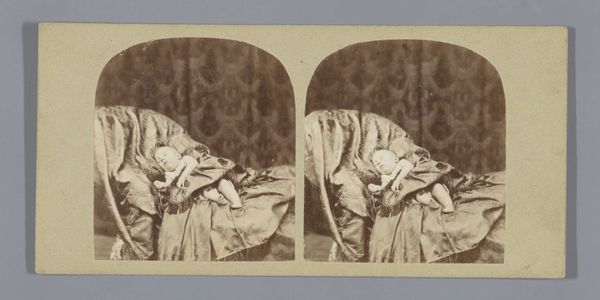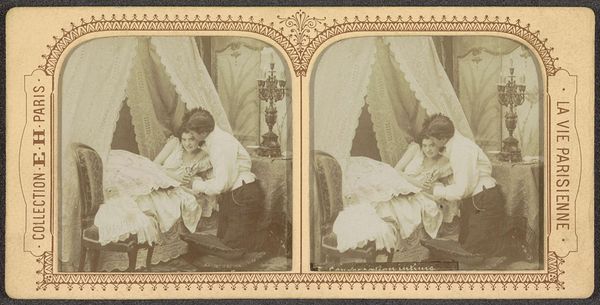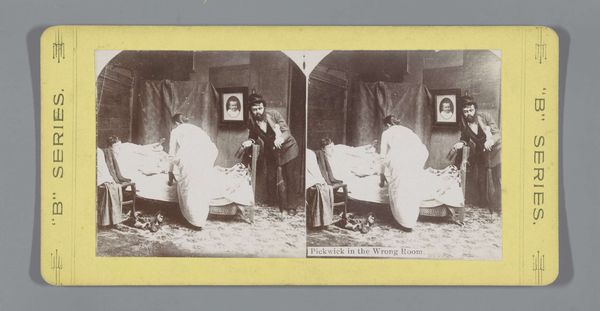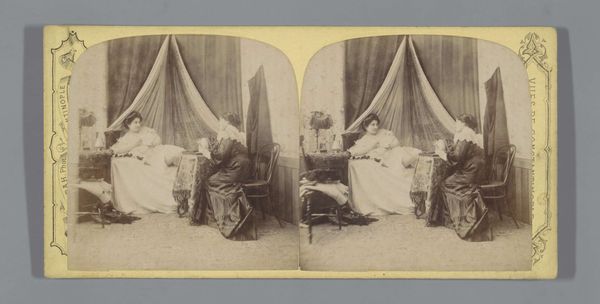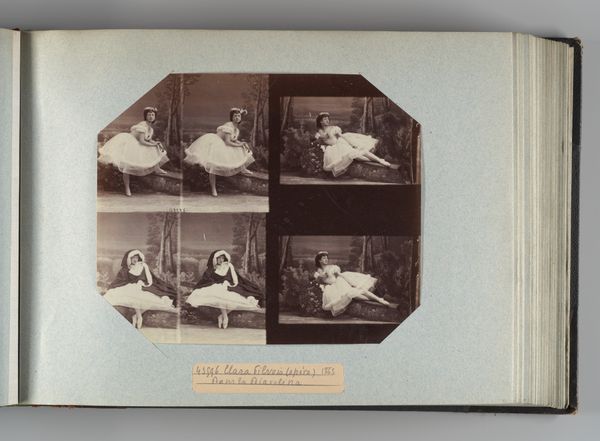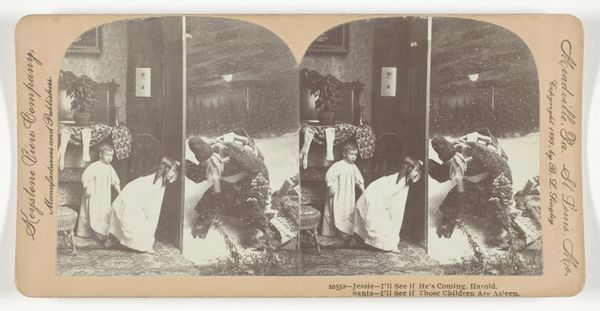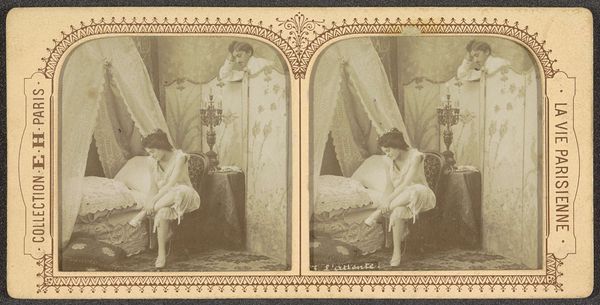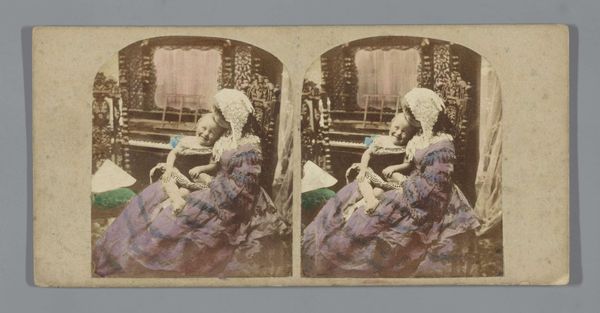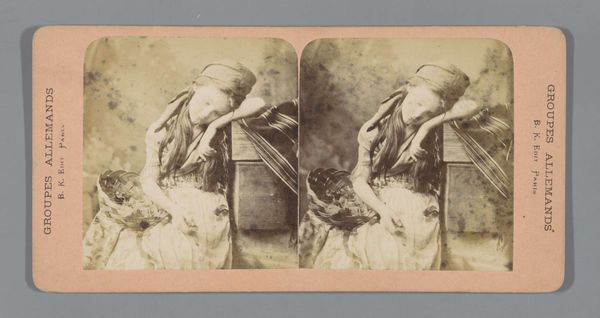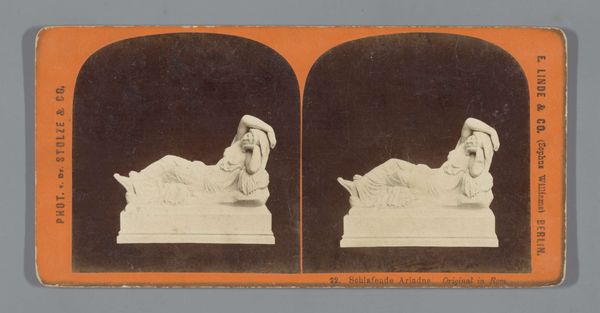
photography, gelatin-silver-print
#
portrait
#
photography
#
gelatin-silver-print
#
symbolism
#
genre-painting
Dimensions: height 88 mm, width 177 mm
Copyright: Rijks Museum: Open Domain
Editor: Here we have "Sleeping Girl in Bed with a Ghost," a gelatin silver print made in 1897, by Carleton Harlow Graves. It gives off such a staged and eerie feeling. What do you make of it? Curator: Intriguing. Looking at this through a formalist lens, I see a carefully constructed composition. Consider the layering of textures – the crisp linens of the bed juxtaposed with the gauzy, ethereal form of the… "ghost," as you say. How does this contrast contribute to the photograph’s meaning, do you think? Editor: It emphasizes the difference between the physical and the spiritual, right? The bed and furniture seem very real while the ghost seems light. How was that ghostly effect created at the time? Curator: Quite possibly through double exposure or darkroom manipulation. Focus instead on how this photographic technique alters our perception of the figures, specifically noting that this is in stereo which gives it additional dimensional space to give a viewer the uncanny experience. How does the manipulation of light and shadow, affect your understanding of what Graves may have been seeking to communicate? Editor: The softness almost makes her seem angelic, adding to that dreamlike atmosphere. The focus and how things fall out of focus is pretty central too! Curator: Indeed! By attending to these formal elements and structural considerations, we gain valuable insight into Graves’ aesthetic vision and conceptual design, and we’ve given names to all those creative moves. It speaks volumes. Editor: This has opened my eyes! Curator: As it should! This exploration only confirms how understanding a work’s formal components deepens one's ability to recognize artistic ingenuity.
Comments
No comments
Be the first to comment and join the conversation on the ultimate creative platform.
